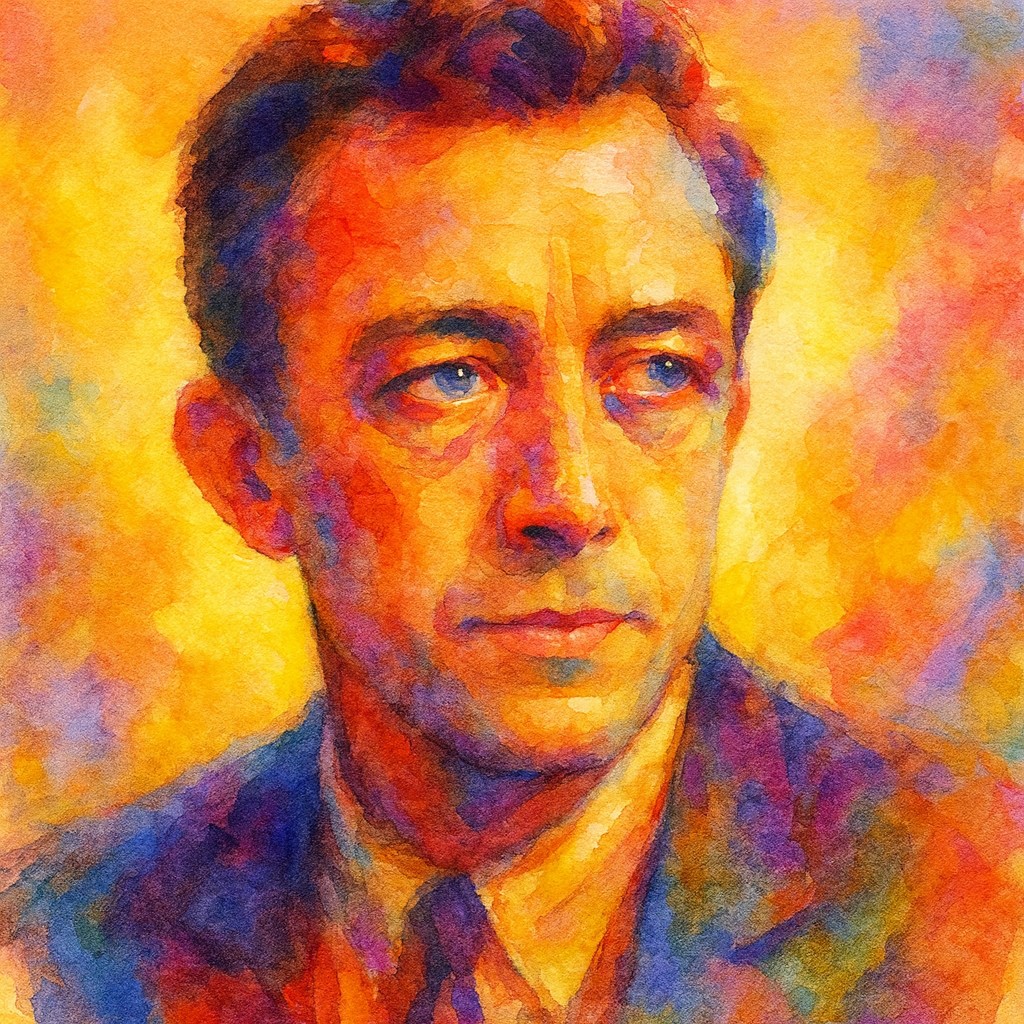~ Albert Camus
 Born poor in Mondovi, Algeria, Albert Camus (1913–1960) grew up attentive to the textures of daily life.
He studied philosophy, worked as a journalist,
and became active in the French Resistance during World War II.
These experiences shaped his belief that meaning is not abstract, it is lived.
Born poor in Mondovi, Algeria, Albert Camus (1913–1960) grew up attentive to the textures of daily life.
He studied philosophy, worked as a journalist,
and became active in the French Resistance during World War II.
These experiences shaped his belief that meaning is not abstract, it is lived.
“If, after all, people cannot always make history have meaning,” he wrote, “they can always act so that their own lives have one.” Camus did not promise easy answers. He asked instead for honesty, responsibility, and presence.
Living in a time of global upheaval, Camus became widely known for his novel The Stranger, in which he explored the tension between absurdity and choice, and the human search for values in an unpredictable world. Through clear language and moral attention, he tried to make sense of chaos without denying it.
“The absurd is sin without God,” he observed, not as a rejection of belief, but as a challenge to live consciously when certainty is absent. For Camus, harmony did not mean comfort. It meant alignment, between conscience and action.
In 1957, he received the Nobel Prize in Literature “for his important literary production, which illuminates the problems of the human conscience in our times.” His work remains steady, grounded, and bracing in its refusal to look away.
Camus died young, in an automobile accident, yet his writing continues to ask us to live deliberately, to choose freedom with responsibility, and to find harmony not by escaping life, but by meeting it fully.
More Albert Camus Quotations
 Let your life and your values move in harmony. 🎼
Let your life and your values move in harmony. 🎼
